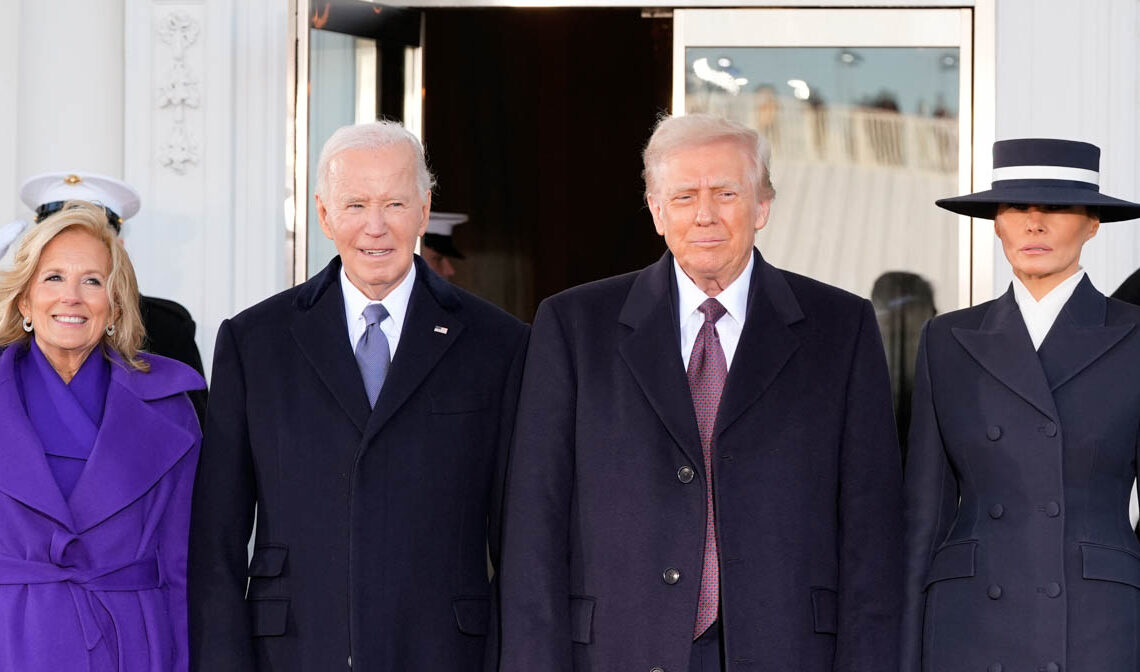By Spencer David Potts
Op-Ed Editor
On Jan 17, the last Democratic Candidate Debate of the 2016 presidential election primary season before the primaries begin aired on NBC News and on the NBC News YouTube channel. The three highest polling Democrat candidates, Hillary Clinton, Martin O’Malley and Bernie Sanders, contested for the primaries. The first primary state, Iowa, holds its caucus only two weeks after the debate.
Before the debate began, national polls had Sec. Clinton polling around 7 to 39 percent above Senator Sanders as former Governor O’Malley remains consistently below 10 percent. However, in Iowa polls showed Clinton and Sanders much closer, with Sanders beating Clinton in two polls. In New Hampshire, the second primary state, most polls showed Sanders leading in the primaries.
Around three hours before the debate began, the Sanders campaign released the details of his healthcare plan, detailing exactly how he would pay for his single-payer healthcare system. The publication of such details follows the Clinton campaign’s claims that Sanders had no definite plan. Less than 30 minutes before the debate, the Clinton Campaign responded to the Sanders campaign’s move with a scrutinizing statement. The Clinton campaign’s manager called the plan backpedaling and only a press-release as opposed to a detailed plan. Despite being a debate between Democrats, there was now an elephant in the room.
Clinton’s introductory statement began with her thanking the Black Democratic Caucus for holding the debate, recognizing the importance of Martin Luther King Jr. She brought up the need to maintain real policies and plans.
Sanders’s introductory statement began with an insistence to have a pledge to keep fighting for rights as Martin Luther King Jr did. He gave his often used phrases of a “rigged economy” and “political revolution” to highlight his beliefs in economic justice.
O’Malley’s introductory statement began with a subtle dig at the other candidates, noting his age as he mentioned being born as Martin Luther King Jr had fought for civil rights, directly contrasting between the candidates ages as Sanders marched among King and Clinton volunteered for presidential candidate Barry Goldwater. O’Malley noted the importance of Obama’s campaign, claiming the president to be an outsider as O’Malley is. O’Malley emphasized continuing the legacy of President Obama.
The first question was presented as a request for each candidate to state what their three priorities for their first 100 days as president would be. The candidates gave lists as opposed to straightforward answers, but three key priorities could still be drawn from their answers. Clinton’s three priorities were: jobs & minimum wage, equal pay, and affordable health care. Sanders’s three priorities were: healthcare, minimum wage, and jobs. O’Malley’s three priorities were: equal pay & minimum wage, immigration reform, and climate change.
When the issue of gun control was brought up, the three candidates were in agreement, calling for more gun control; Clinton and Sanders squabbled over their records as O’Malley pounced and used the opportunity to agree with both candidates, O’Malley agreed that both had inconsistent records as opposed to his. The following question was a poignant question about police brutality, bringing up the case of the murder of Walter Scott; Clinton and Sanders both took the opportunity to promise a fight against systemic injustice in the prison system. O’Malley’s record as governor came up, as did the murder of Tamir Rice. Sanders asserted that officers must be held accountable, the nation should demilitarize our police forces, the need for proper community policing, as well as “mak[ing] our police departments look like our community” in reference to the representation of police forces.
“We have to stop treating drug addiction like a crime, and start treating it like a health crisis” stated Clinton when the issues of drug use and the rising heroin epidemic came up. Clinton and Sanders were in agreement. Sanders called for a “revolution” in mental health treatment.
Clinton stuck by her claims against Sanders on healthcare inconsistencies and Sanders stuck by his claims of his policy’s legitimacy. Clinton expressed her concern that Sanders and O’Malley want to “start over” the Affordable Care Act as opposed to building on it, an option that she believes to be more viable.
“The real issue is that Congress is owned by big money,” Sanders stated as specific economic policy questions began. Sanders flourished as he referenced the late former president Teddy Roosevelt and his promises to break up the banks “too-big-to-fail”. Clinton agreed with Sanders for the most part, but instead attacked Sanders for what she considered to be an attack on president Obama. Sanders had previously called for another candidate be primaried against Obama in the 2012 election, Clinton saw this as an opportunity to contrast her with Sanders and bring up her support of Obama, the same person she ran against in 2008.
O’Malley brought up inconsistencies in Clinton’s claims against Sanders later on, plainly calling what she said “lies”. Sanders attacked Goldman Sachs and brought up the money Clinton received from them, stating “I don’t get speaking fees from Goldman Sachs”.
Sanders was asked how he will pay for what he proposes, to which he gave specific explanations. Taxing the middle class, and the title of “democratic socialist” came into question for Sanders. Plenty of lip service to the Occupy movement ideologies were played by all of the candidates.
There were only two questions on climate change, Sanders and O’Malley both answered and agreed on an urgency to fight climate change and adopt green technology. Clinton had no opportunity to answer.
At the halfway point, the debate turned to foreign policy as Iran was brought up. All three candidates supported President Obama’s deal with Iran. Sanders claimed that Iran’s behavior as a whole was unacceptable, however diplomatic relationships are desirable, suggesting to move in “warm relations” as President Obama has done with Cuba. Clinton emphasized how she worked for the deal and proudly supports the president’s deal, but they must “carefully watch them” and “go after them” for their other bad behavior.
In response to a question on Syria, Clinton suggested an “air coalition” and support for fighters on the ground without sending American troops as well as contesting on online space. Clinton claimed that she would fight ISIS through diplomatic means. Sanders applauded Obama’s work and warned the nation not to follow “perpetual warfare” as we did in Iraq. Quoting King Abdullah, Sanders claimed that “this is a war for the soul of islam”, insisting that Muslim troops will fix the issue not American troops. O’Malley used the question to distinguish himself, noting that the winners of the past two world wars were once governors as he was. O’Malley asserted that the nation needs new alliances.
Throughout the foreign policy questions, the word “quagmire” was thrown around often however no dictionaries were thrown alongside. Not even a thesaurus.
On the issue of privacy rights, O’Malley insisted that the federal government should have a warrant to spy on people, Sanders agreed with O’Malley and brought up his record on voting against PATRIOT Act. Sanders added that Americans should not only fear privacy violations from the federal government but also corporations. Clinton did not answer directly about privacy rights, but her support of the PATRIOT Act and her assertions against snowden make her point clear. Clinton used the question as an opportunity to attack Republicans.
“If Donald Trump wants to start a registry in our country of people of faith, he could start with me,” O’Malley added.
The candidates were asked how they would appeal to young voters. Unfortunately, there was no whipping and nae-nae-ing from Clinton, memes from Sanders, or guitar playing from O’Malley.
“The millennial generation knows what been wrong in the past; and they know what they want to see to change all of that,” said Neshaminy Senior and likely democratic voter Dana McCabe, “to be successful in capturing millennials’ attention, I think that doing what a ‘politician’ does best is fine; you have to be a people person in this kind of race. Speak about what that generation wants to hear and really be sincere about it. The millennials don’t want a wall built around the borders, they want a solution college debt and a more liberal state.”
More personal and inconsequential questions were brought up, prompting Sanders to articulate the lack of importance former President Bill Clinton’s affairs affect the debate with Secretary Hillary Clinton. Clinton’s “interesting” relationship with Putin was brought up, and the question of what Bill would do as first gentleman, Hillary said that his role would “start at the kitchen table”.
Beginning with O’Malley and Clinton and Sanders following respectively, the candidates were each given time to give a final statement in the debate as well as bring up any issues they felt should have also been addressed at the debate. O’Malley ended with emphasizing a need for immigration reform, solving issues in Puerto Rico, solving the issues of drug trafficking as well as a need for intelligent economics. Clinton highlighted the controversy surrounding the corrupt waters of Flint, Michigan and possible racial components to the issue as well as the environmental and economic violence used against the people in the city. Sanders reiterated Clinton’s concerns over the waters and called for a resignation of the mayor responsible, emphasized need to get money out of politics with a call for an overturn of the Citizen’s United case, and finally he called for a “political revolution” as he often does.
The oddly timed debate marked a continual problem with the Democratic Debates of the 2016 cycle, a Sunday night on a holiday weekend. The past debates have been two Saturdays and a Tuesday, all of the Democratic debates fall on low television viewership dates according to Nielsen ratings. In total, the Democrats have six debates and three forums in this cycle whereas the Republicans have twelve debates and four forums. There has been some claims from the Sanders and O’Malley campaigns that the reason behind the seemingly low number of debates is foul-play on the part of the Democratic National Committee or its Chairwoman, Debbie Wasserman Schultz, going as far as suggesting the committee is using its powers to aid Clinton although there has been no damning evidence to support these claims.
The twitter government and election team, @gov, reported that statistically Bernie Sanders received the most twitter follower growth out of the candidates in the debate, followed by Martin O’Malley and with Hillary Clinton having the least growth in followers. Twitter Government also reported that Sanders was the most mentioned candidate on Twitter with 47%, followed by Clinton with 42%, and finally with O’Malley at 11%.
Sanders often wins on the internet and with progressive democrats with his consistently progressive agenda, Clinton often wins with more moderate, “establishment” democrats due to her name status, and O’Malley doesn’t win. In an unbiased view, it appeared O’Malley won, his responses were stronger than in previous debates, he was well-rehearsed and attempted to distinguish himself from the Sanders/Clinton debacle. Clinton fans will say Clinton won, Sanders fans will say Sanders won, and O’Malley’s parents will most likely say O’Malley won.
What will happen in the Iowa caucus? There is no certain answer, yet.







